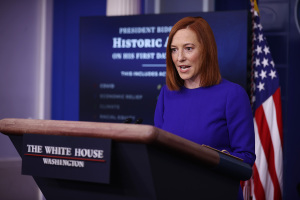Saudi Arabia Relaxes Archaic Restrictions on Women
Women in Saudi Arabia will get more basic freedoms as King Salman has taken a step towards increasing their emancipation by relaxing the kingdom's controversial guardianship laws. The new directive allows females to apply for a range of government services, such as healthcare, without the consent of their male guardians.
The Kingdom Saudi Arabia (KSA) is known to be one of the world's most gender-segregated nations where women are restricted in their movements, are not allowed to drive cars, and are required to wear the hijab — the traditional Islamic headscarf covering the head and hair, but not the face.
They also require permission from men for everyday liberties like traveling, studying, going on trips, obtaining medical treatment, opening a bank account and seeking police assistance. However, a new decree now allows women to obtain these services without having to receive written permission from a husband, father, brother, or any male figure responsible for them.
The new decree is the latest in a series of steps to relax some restrictions on women. The move began in 2011 when the late King Abdullah allowed female representation in the government advisory Shura Council. He also allowed women to vote in municipal elections and to work in some hospitality and retail jobs.
Despite these freedoms, KSA still ranked 141 out of 144 countries in the 2016 Global Gender Gap, a World Economic Forum index that measures gender equality. The loosening of restrictions in the guardianship system is a step towards the inclusion of more women in the workforce to diversify the economy and reduce the country's dependence on oil.
Women's rights campaigner Maha Akeel welcomes King Salman's move. "Now at least it opens the door for discussion on the guardian system. Women are independent and can take care of themselves," Daily Mail quoted Akeel as saying. "Male guardianship is un-Islamic and humiliating for women," she added.




























